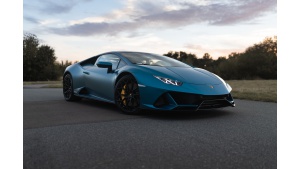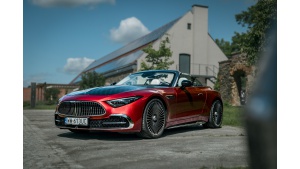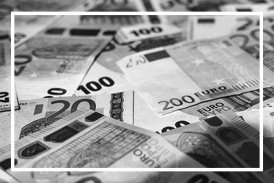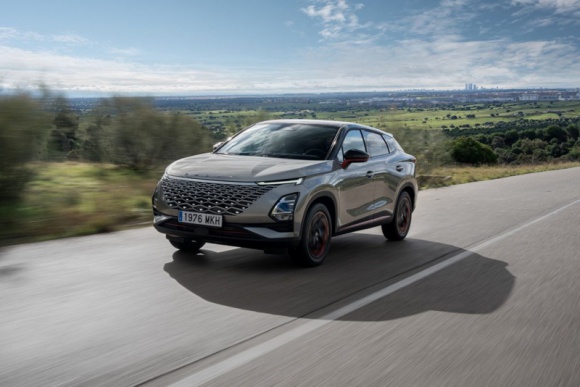OMODA&JAECOO on European markets. Poland as an important element of expansion
OMODA&JAECOO is to establish approximately seven subsidiaries on European markets in various EU countries, including Poland. In other markets, the chain will conduct business activities through cooperation with local distributors.
A new chapter on the European market
At the beginning of the year, OMODA debuted in Spain. The first model of the Chinese manufacturer - OMODA 5, is available on the local market in two versions: combustion with a 1.6 TGDi petrol engine and fully electric with the E5 designation. The model was designed with the European recipient in mind, starting from the design and taking into account the standards applicable on the old continent. The structure was created with the participation of European engineers in the brand's development center near Frankfurt.
Network in Poland
Poland is to be an important element of the brand's expansion plan to European markets. A dealer network will be established here, which will initially consist of 25 showrooms in the largest cities, and by 2025 there will probably be 40 of them. In addition, the company plans to create spare parts warehouses in Poland to better meet the needs of local users.
The Chinese manufacturer invited the best dealers from various regions of Poland to participate in test drives in China. With the arrival of show cars in Poland, OMODA&JAECOO plans to conduct more local test drives in the future.
- Poland plays a significant role in our entry into the markets of the old continent. Europe is a very large market, we are very happy to become part of it and provide our solutions to European customers. The market size and geographical location are key factors that make Poland an obvious direction of development, so important in the process of expanding our distribution network. The appearance of the brand in Poland and the creation of appropriate infrastructure here is a huge opportunity for our company - says Eric Zhang, director of the Polish branch of OMODA&JAECOO.
International cooperation
On April 19 in Barcelona, the Spanish automotive company EV MOTORS and Chery Automobile (owner of the OMODA brand) signed a cooperation agreement at the EBRO plant. The signing ceremony was attended by Spanish Prime Minister Pedro Sánchez. The companies want to leverage their strengths by sharing technology platforms to revive the EBRO brand. EBRO was founded in 1954 and operated for the next 30 years, until 1987. In 2023, the Catalan government launched the EBRO "re-industrialization" project, in which a disused factory in Barcelona is to be used to build new assembly lines and create new cars under the EBRO banner.
EV MOTORS - a Spanish company specializing in the design, production and marketing of vehicles manufactured in Spain - and the Government of Catalonia have chosen Chery Automobile as a partner for this project, which has mature technology and an innovative research and development system. The partnership is intended not only to help the revival of the EBRO brand, but also to increase local employment and support and promote the local economy. EBRO FACTORY consists of two facilities: a vehicle production facility located in the Zona Franca in Barcelona and a Montcada and Reixach facility for stamping and welding metal parts.
![Sytuacja na rynku samochodów w Polsce korzystna dla branży leasingu i MŚP [RAPORT EFL] Biuro prasowe](https://www.newseria.pl/files/703287956/depositphotos-386621210-l,w_300,wo_300,ho_169,_small.jpg)
Sytuacja na rynku samochodów w Polsce korzystna dla branży leasingu i MŚP [RAPORT EFL]

Wygraj przejazd supersamochodem na lotnisko! Easy Parking i Cylindersi zapraszają do konkursu

Polski rynek dóbr luksusowych rośnie, Mercedes odpowiada
Więcej ważnych informacji
 Jedynka Newserii
Jedynka Newserii

 Jedynka Newserii
Jedynka Newserii

Polityka

W tym tygodniu Komisja Europejska przedstawi projekt budżetu na lata 2028–2034. To będzie pierwsza długoletnia perspektywa czasu wojny
16 lipca Komisja Europejska przedstawi swój pomysł na budżet w kolejnej siedmioletniej perspektywie. Projekt ma przewidywać mniej programów, większy udział kwot niezaplanowanych, a także mechanizmy i rezerwy, które umożliwią szybszą i bardziej elastyczną reakcję na zmieniające się potrzeby. Więcej w nim będzie również środków przewidzianych na wzmocnienie bezpieczeństwa. W maju Parlament Europejski odrzucił w głosowaniu propozycję KE, by budżety przewidziane na okres po roku 2027 konstruować tak jak KPO.
Polityka
P. Müller: Wnioski z ludobójstwa w Srebrenicy szczególnie aktualne w kontekście ukraińskim. Społeczność międzynarodowa nie może przymykać oczu

W ubiegłym tygodniu obchodzono 30. rocznicę ludobójstwa w Srebrenicy, gdzie z rąk Serbów w lipcu 1995 roku zginęło ponad 8 tys. bośniackich mężczyzn i chłopców. To jeden z najciemniejszych rozdziałów najnowszej historii Europy – podkreślali szefowie instytucji UE. – To także lekcja dla społeczności międzynarodowej, która nabiera szczególnego znaczenia w kontekście agresji Rosji na Ukrainę – mówi Piotr Müller, europoseł z PiS.
Media i PR
Parlament Europejski wzywa do większej ochrony wolności dziennikarzy. Wiceprzewodnicząca: media mają pełnić funkcję kontrolną, a niektórym rządom to się nie podoba

8 sierpnia br. w państwach członkowskich UE zacznie obowiązywać europejski akt o wolności mediów. Przepisy rozporządzenia mają chronić pluralizm i niezależność mediów. Jak wynika z nowego raportu KE dotyczącego praworządności, wciąż jest to obszar, w którym jest dużo zagrożeń. Również Parlament Europejski wzywa kraje członkowskie do intensywnych wysiłków na rzecz wolności mediów i ochrony dziennikarzy.
Partner serwisu
Szkolenia

Akademia Newserii
Akademia Newserii to projekt, w ramach którego najlepsi polscy dziennikarze biznesowi, giełdowi oraz lifestylowi, a także szkoleniowcy z wieloletnim doświadczeniem dzielą się swoją wiedzą nt. pracy z mediami.




![Część środków z Planu Społeczno-Klimatycznego trafi na walkę z ubóstwem transportowym. Organizacje branżowe apelują o zmianę priorytetowych projektów [DEPESZA]](https://www.newseria.pl/files/1097841585/rower3,w_85,_small.jpg)




.gif)

 |
| |
| |
|